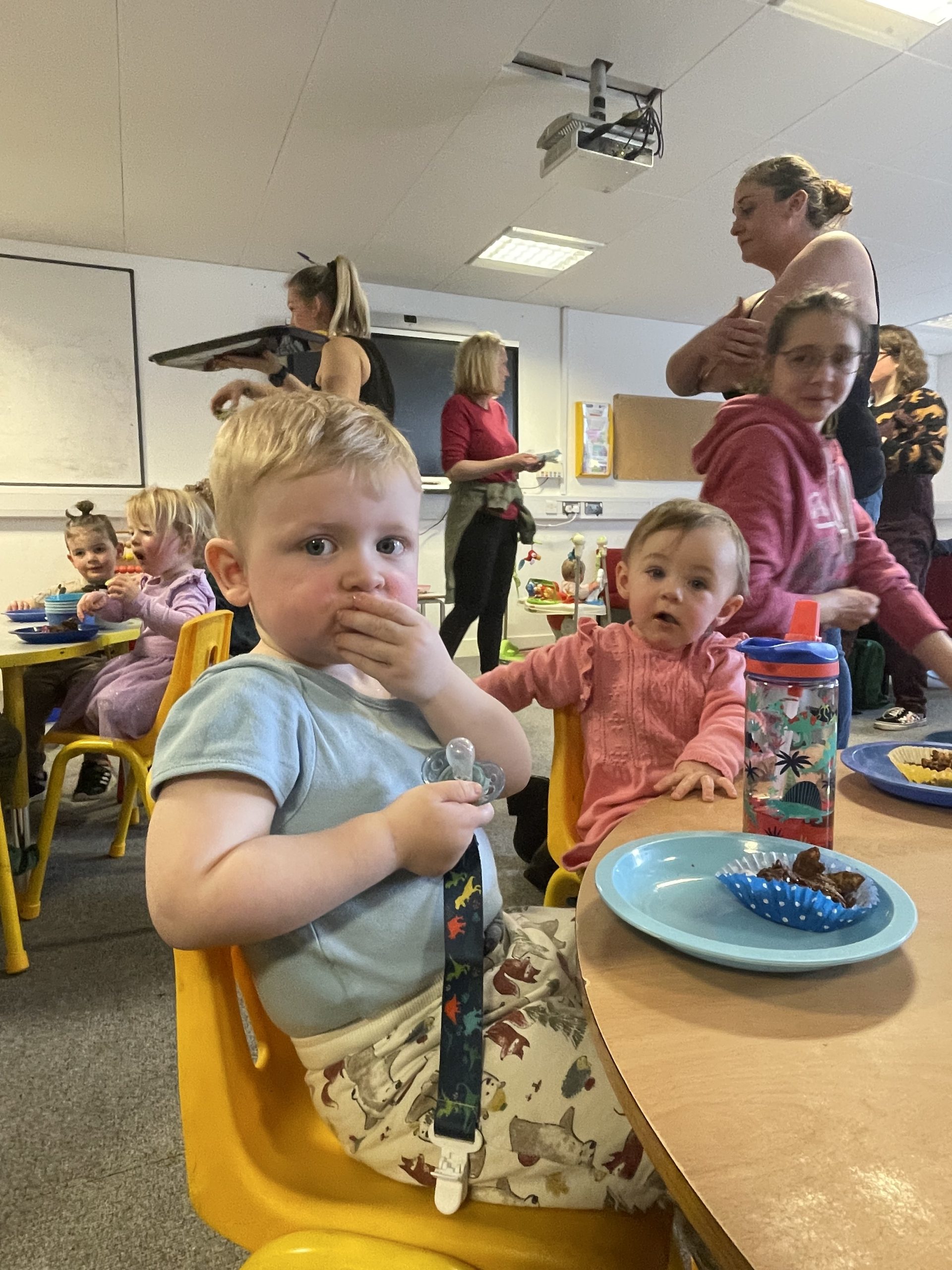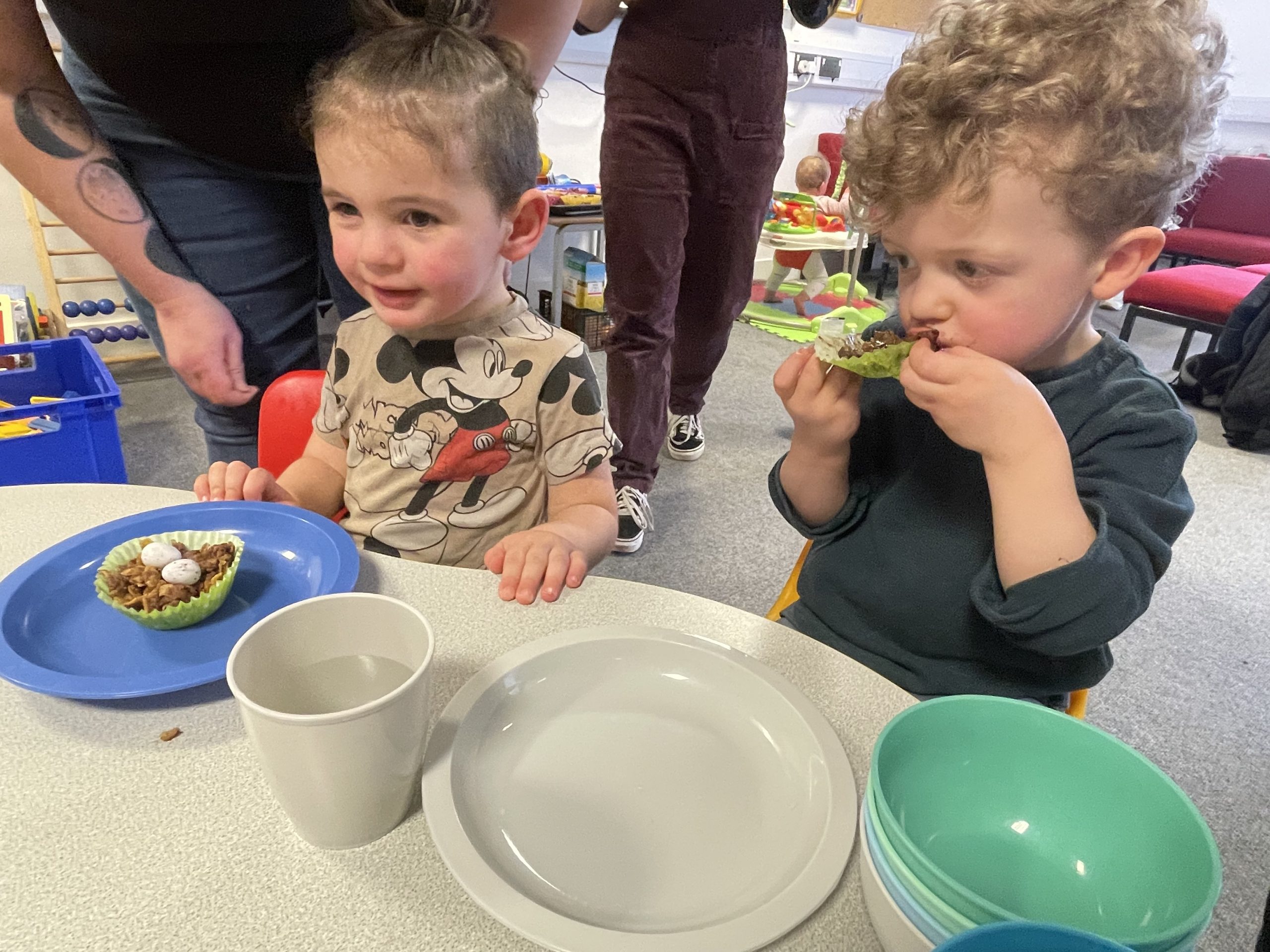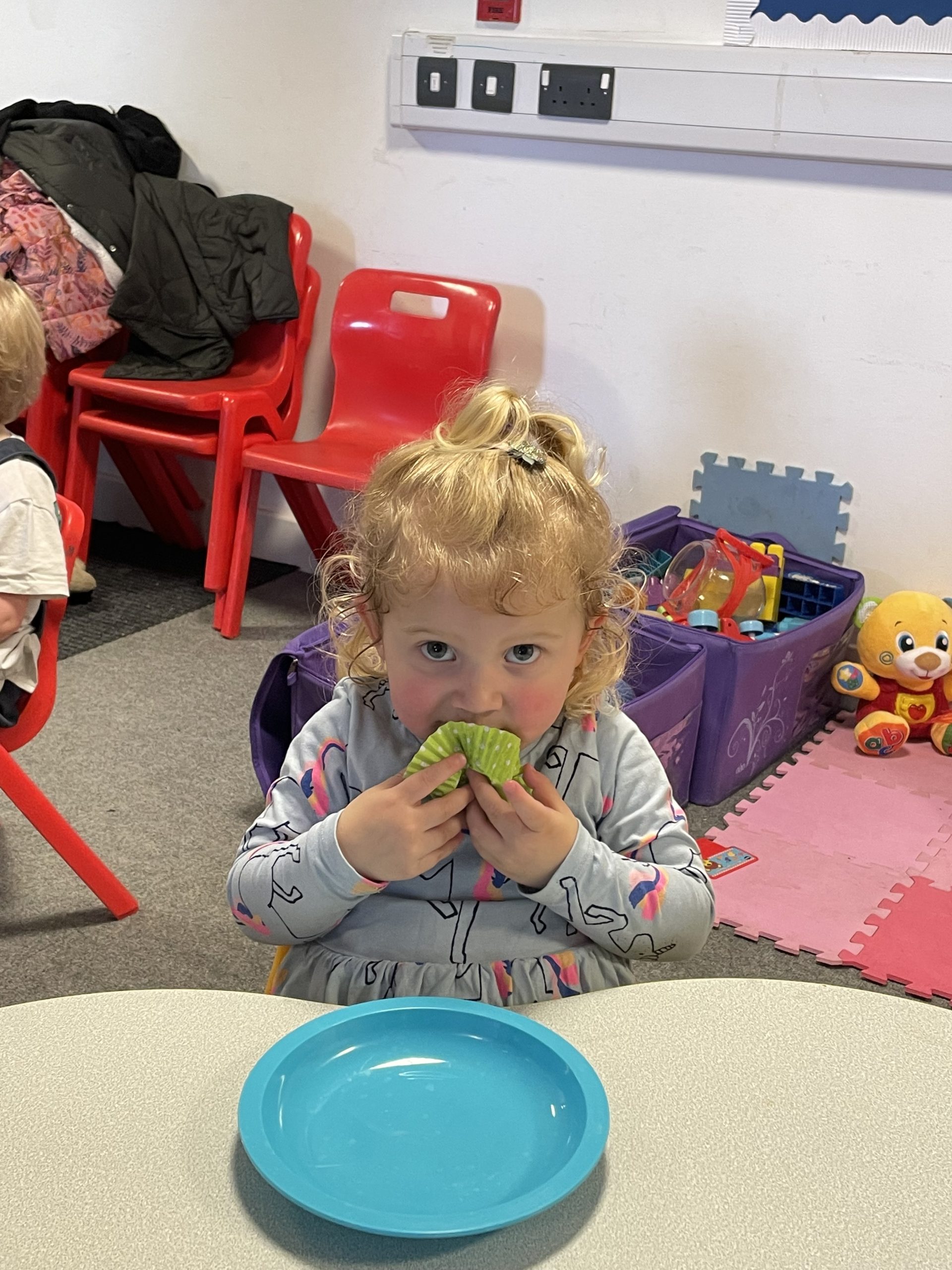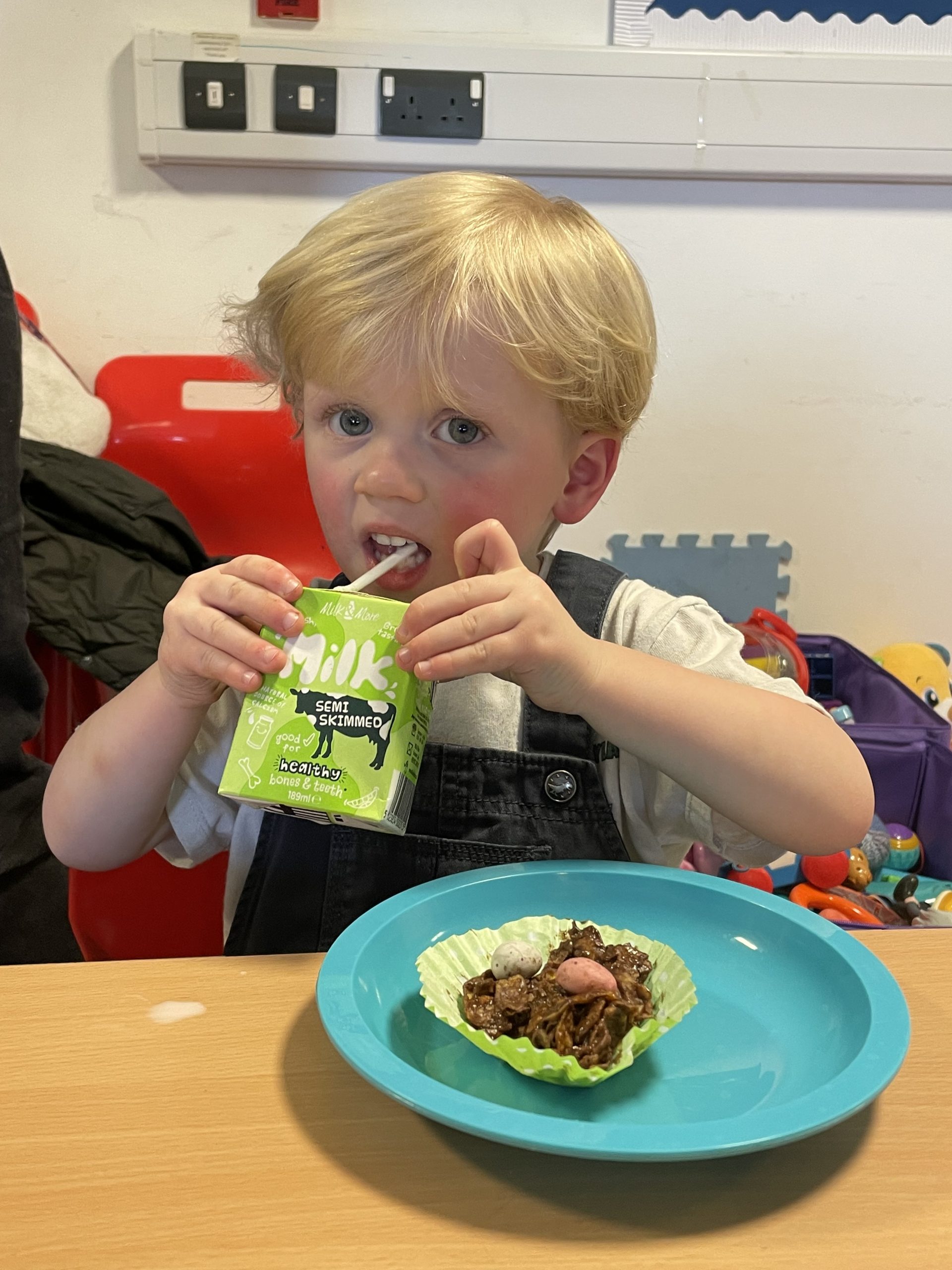The Early Years – Nursery and Reception
How do you apply for a place at Darlinghurst Nursery?
At Darlinghurst nursery we accept children into Nursery once they turn 3 years old. Funding can start at the age of 2 upwards and parents can check their eligibility on GOV.UK. This means that they may start with us from their 3rd birthday or the term after. Funded places are allocated termly.
Our Admissions officer, Miss Davis can help with any enquiries. 01702 509205 or contact
admissions@darlinghurstacademy.org.uk
Darlinghurst Academy supports the education of children from age 3 to 11. Our integral Nursery provides the start of their journey within the Early Years. We call this the Rockpool.Our Nursery, known as ‘Tiddlers’ and Reception classes, ‘Jellyfish and ‘Starfish’ are part of the Foundation stage.
The area is central to the academy with designated indoor and outdoor spaces.
The Nursery is a caring and nurturing space with a passionate team who are well loved by children and parents past and present.
It is never too early to start thinking about the Early Years!
Our 3-4 year old children begin their journey in Tiddler’s (our Nursery) and continue to be in Reception as members of Jellyfish and Starfish. Together they form the Rockpool.
Children can also start with us in the Reception year, selecting Darlinghurst as the school of choice within the admissions process.
Throughout their time in the Rockpool, children develop their curiosity and wonder as they explore, discover and create. The Rockpool is a dedicated area for Early Years provision, with indoor and outdoor zones, across the Foundation stage. Our provision is a balance of adult-led and child-initiated learning. We support them in developing their characteristics of learning within a rich curriculum across seven areas of learning.
At Darlinghurst Academy, our children are at the centre of all that we do. We pride ourselves on providing a nurturing, creative and positive learning environment. Nurture helps our young children form positive relationships, build resilience and improve their social, emotional and mental health and wellbeing.
1. Children’s learning is understood developmentally
We know that children are at different stages of development – socially, emotionally, physically and academically – and need to be responded to at their developmental stage in each of these areas. Our team responds to each child’s individual needs, helping them to feel confident, safe and secure.
2. The Rockpool offers a safe base.
The rockpool is an environment that is inviting and nurturing for all. The indoor and outdoor zones offers a balance of educational and social, emotional and mental health experiences aimed at supporting the development of children’s relationships with each other, their key worker and the wider team. All the team are reliable and consistent in their approach to children. They all know our children well. We know that predictable routines provide clear expectations and positive models. They provide safe boundaries. Academy routines start in nursery. We also provide safe spaces to regulate or relax. Mindfulness is part of our provision.
3. The importance of nurture for the development of wellbeing
Nurture involves listening and responding; tiddlers is a place full of talk. Our children are active in learning. Every child is valued and heard. They are tiny individuals supported in their character development and interests. The team notice and praise every small step and achievement. We celebrate together and share news with home via our online Tapestry Journal. The journal is accessible by both parents and the Early Years team. It contains observations, photographs, samples of drawing, writing, art work and documents their experiences, skills, interests and progress within the seven areas of learning identified in the Early Years Foundation Stage Curriculum.
4. Language is a vital means of communication
Our children are encouraged to express themselves. The team support them in developing their confidence and ideas; to understand their thoughts and feelings. We support them with the language and tools to manage their feelings. This enables words to be used instead of actions to express feelings, and imaginative play can be used to help children understand the feelings of others. We develop emotional literacy in nursery and beyond. Staff use commentary during play to model language and support development.
5. All behaviour is communication
People communicate through behaviour. It is the role of the team to help children and young people to understand their feelings, express their needs appropriately, and use non-threatening and supportive language to resolve situations. The outward behaviour is often the ‘tip of the iceberg’ and we look to support the needs of the child through an holistic approach. This helps the team to consider, what are they trying to tell us? All the team use a relational approach to support children in managing their behaviour. Having a quiet area helps our children to calm, and give time to talk.
6. The importance of transitions in children’s lives
Children experience many transitions throughout their lives, and on a daily basis; transitions from home to school, between classes and teachers, from breaktime to lessons, or moving from primary to secondary school. Our staff help the children in transition with carefully managed preparation and support from the outset of starting school. We prepare our children for change and have settling and transition routines. We know that children and young people may feel calmer if time can be made to discuss how they feel when things change, in an open and honest way, to help them put coping strategies in place. Induction processes are in place for starting Tiddlers or Reception.
Is your child due to start school in September 2024?
Parents/carers of children born between 1st September 2019 and 31st August 2020 will need to apply for a Primary School place.
How do you apply for a place at Darlinghurst Academy?
Please apply through the local authority at admissions@southend.gov.uk for an application for Reception and Year 3 placements.
How do you apply for an in year place at Darlinghurst Academy?
We provide our own admissions process for in-year admissions, please contact Mrs Lowe on 01702 509201 or by admissions@darlinghurstacademy.org.uk
Alternatively click here to download a copy of our admissions form.
What if your child already attends Darlinghurst Nursery?
Parents/carers of children in nursery will still need follow to the admission process and apply through the local authority at admissions@southend.gov.uk, if you have any queries please contact Mrs Lowe on 01702 509201 or by email admissions@darlinghurstacademy.org.uk
How do you apply for a place at Darlinghurst Nursery?
At Darlinghurst nursery we accept children into Nursery once they turn 3 years old.
We have 3 intake groups throughout the academic year, September, January and April.
We provide our own admissions policy, please contact missdavis@darlinghurstacademy.org.uk for any nursery queries. Please click here to download a copy of our Nursery admissions form.
Following your school offer, if you would like to appeal against the decision please follow the link: Visit Southend.gov.uk On time submission of appeals – 18 May 2024 (appeals after this date will be heard in late sept) On time appeals must be heard by 18 July 2024
A Warm Welcome From Mrs Nicholls
After National offer day our children receive their first virtual postcard – ‘b for belonging’ and a special welcome message from Mrs Nicholls.
Our academy values are important to us and intrinsic to all that we do. They are promoted and celebrated throughout their learning journey at Darlinghurst. A-D leads to E.
Welcome to our Academy
We recognise the importance of building relationships in the Early Years. As soon as our induction process begins, we start to make contact with home, getting to know each other. This happens for new joiners to Tiddlers and Reception Jellyfish and Starfish class. Our special virtual video welcome book, is sent home to families to share together.
Induction activity 1: A is for achievement
We love to celebrate achievements, big and small and we would love to hear about your achievements and milestones. Here is an achievement postcard that you can use to share your special moments with us.
Induction activity 2: B for belonging
We hope you liked the video welcome book. Can you make a story book about you? What do you want to tell your new teacher? Your book can include words, pictures or even a video message.
Induction activity 3: C for confidence
You are coming to Reception in September and will be in Jellyfish or Starfish class. We will be sending your grown ups a special letter to tell them which class you are in. At Darlinghurst we love to explore, discover, create and do. When you find out which class you are in can you create or make a Jellyfish or Starfish? What can you find out about your Rockpool creature? On your first day bring along your discoveries or share with us your findings on Tapestry. We can’t wait to see your very own Jellyfish or Starfish on your first day.
Induction activity 4: D for determination
Can you practice independently dressing and undressing . Can you use a zip? Do up a button or fasten so Velcro. Have a go!
Don’t forget to practice washing your hands as you count. Can you wash your hands for 20 or wash your hands as you sing along to a song.
Induction activity 5: E for excellence
At Darlinghurst we achieve excellence together.
Tiny Tiddlers
Tiny Tiddlers is a weekly session that is hosted at the back of the Academy in the Harbour during term time only. Initially, the group was formed to introduce pre-schoolers to the Academy, get to know some of the staff and experience the wonderful outdoor space we have to offer. Since then, the group has grown to so much more and is now attended from babies in arms right up to Reception starting age. It’s a fully inclusive group that provides the opportunity for all that attend the chance to discover, create and do and for families to come together and form friendships and community groups, even planning trips to the park and organising events during the holidays, so the children can still see each other outside the group. The sessions runs on a Thursday from 8.50am (after the main school and Nursery have started school) till 10.45am and is only £2 a session, paid via parent pay or cash on the day and entry is via the Brooke gate.
Each week, when I open the gate, I am greeted with smiley faces, huge hugs and eager toddling children, ready to come in an explore Tiny Tiddlers. Each week we sing songs, tell stories and make something to take home too. At each session snack is provided, with some weeks the children making their own snacks to share, including icing their own biscuits or cakes. The children sit for snack and learn table manners and practise some of the skills they can transfer to when they start Nursery. Tea and coffee are provided for adults and a safe space to talk and let their children learn and explore, developing their social skills, their fine and gross moto skills and developing their imagination and language. There are also plenty of Miss Wise cuddles to go around! The children are already demonstrating the academy values of A to D and are a real credit to the families that bring them each week.
If anyone is interested in attending Tiny Tiddlers, please email
It really is a lovely group! We have lots of fun and I look forward to it every week. So, grab a friend and come along and see for yourself and I look forward to seeing you there.




